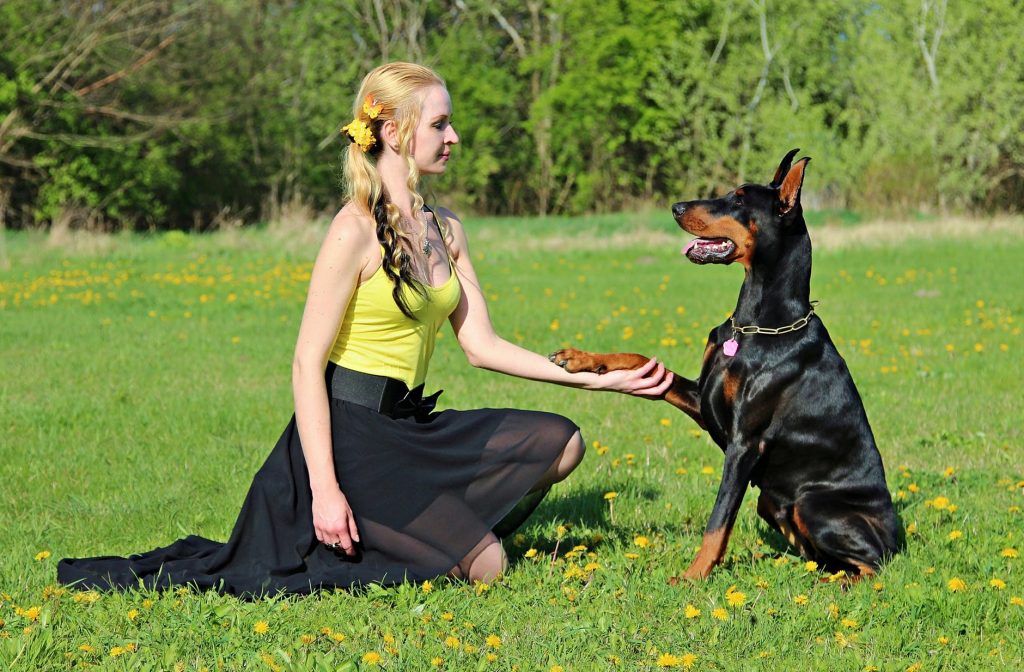Generally speaking, dogs are considered to be friendly, particularly when it comes to their interaction with humans, including their owners. Researchers have devoted a bit more time to trying to understand why canines do seem to have a default setting of being friendly to humans, particularly their owners. Recent research has revealed that a primary reason why dogs are friendly stems from their genetics.
Overview of the Study on Dogs, Genetics, and Friendliness
In working to better understand why dogs, as a group, tend to be gregarious and friendly, researchers selected a group of domestic dogs and grey wolves, that were living in captivity. Domestic dogs of all types evolved from wolves, beginning tens of thousands of years ago, according to researchers. The study included researchers from Princeton University.
The researchers focusing on why dogs are friendly focused on the behavior of the domestic dogs and grey wolves in captivity. As part of this research, researchers carried out a variety of tests aimed at the animal’s ability to problem solve as well as their sociability.
The Evolution of Dogs
Since the process of domesticating wolves began, dogs possessing genes that made them gregarious as well as genes that made them crave human company or companionship were selected. These genes became dominate over time and appear in dogs in this day and age nearly always. During this time, certain genes that make dogs particularly gregarious have been selected for, according to research.

The Essential Results of the Study
The study considering the domestic dogs and grey wolves concluded that dogs and wolves possessed comparable abilities when it comes to problem solving. For example, both animals were equally adept at retrieving sausage from a plastic lunchbox.
The difference between dogs and wolves occurred when the matter of friendliness was examined. Dogs were deemed significantly more friendly. For example, dogs spend more time greeting humans, including strangers. Wolves, on the other hand, were demonstrably more aloof. They did not spend any significant amount of time greeting humans, in most cases.
After these observational studies, researchers went a step further and examined DNA between domestic dogs and grey wolves. Researchers were able to identify specific genetic markers, and changes in DNA between dogs and wolves. These alterations in DNA between dogs and wolves is thought to be foundational in domestic dogs being more attentive to humans. These DNA changes were also thought to be the reason dogs were better able to pick up on social cues involving humans.
Where the Dog and Human Connection Began
In order to better understand the connection between dogs, genetics, and friendliness with and to humans, a consideration of the first encounter between dogs and humans is important. A general consensus exists that “in the beginning,” wolves that were more tolerant of humans would sneak into camps of the hunter gatherers. They did this in order to eat food scraps.
The theory is that wolves that proved to be “more friendly,” or at least better able to tolerate and interact, at least to some degree, with humans were bestowed with more food scraps. Through the process of natural selection, those dogs that were better able to “interact” with humans survived in larger numbers than was the case with wolves who were less tolerant, or even fearful.
In response to the “friendlier” wolves, the process of humans becoming closer to the species and domestication of wolves commenced. This worked to buttress the natural selection of “friendlier” wolves, a process that resulted in the spectrum of domesticated dogs we see today.
Pack Animals and People as Part of the Pack
There are also some theories that propose dogs consider humans to be part of their pack in this day and age. The connection a dog can develop with his owner can be so profound that a canine truly does consider his or her owner to be “one of the pack.”
The converse reality is that many humans consider their dogs to be part of the family. The bond found between members of a pack, as well as between members of family, further the strength of the connection between dogs and humans. The net effect of this is to render dogs even more prone to be friendly towards humans, and vice versa.
In addition to fostering a notable level of friendliness, the connection developed between dogs and humans has other results as well. For example, dogs become protective of their owners, typically highly so. Dog owners are similarly highly protective of their canine companions in most instances.
Jessica Kane is a writer for Handicapped Pets, your most trusted source for dog wheelchairs and harnesses.







